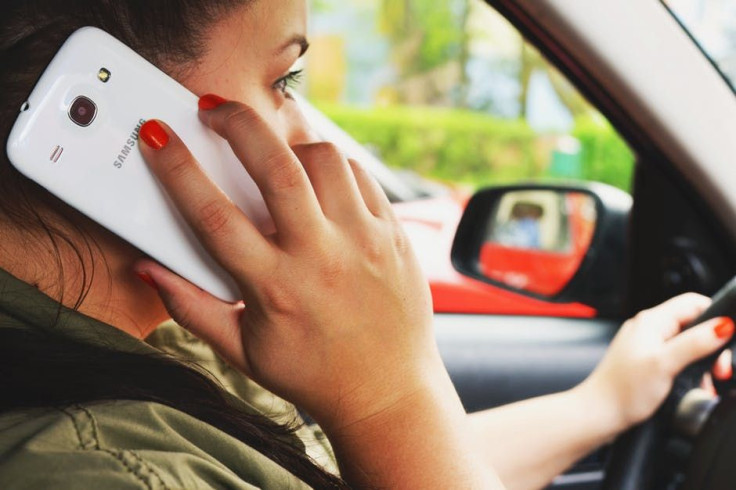Distracted Driver: Using A Cell Phone While Driving Impairs Brain, Delays ‘Attention Disengagement’

There’s many ways using your phone can distract you from focusing on the road: texting, talking to a friend, scrolling through social media, searching for the next song to play, and the list goes on. But what is it about cell phone use that inhibits our brain’s ability to focus?
It’s due to “attention disengagement,” according to new research. In the first known study to examine the effect, researchers at the University of Iowa conducted an experiment that mimics real-life scenarios in which a driver is on their phone or talking to a passenger. They found participants who were trying to answer questions during the scenarios had a harder time switching their attention to something new.
Read: Tips To Stay Awake Behind The Wheel When You're Driving Drowsy
“What this study suggests is the reason you should be cautious (when talking on the phone while driving) is it slows your attention down, and we’re just not aware of it because it happens so fast,” study author Shaun Vecera said in a news release.
In the research, published in the journal Psychonomic Bulletin and Review, participants were asked true or false questions. Some of the study subjects were required to answer, while others were not, which is known as passive listening, as opposed to active listening. All of the subjects’ eye movements were tracked with high-speed cameras.
The cameras revealed it took about 100 milliseconds for participants to take their vision from one object to the next that appeared on the computer screen.
"Active listening delays the disengagement of attention, which must occur before attention can be moved to a new object or event," Vecera said.
Read: Forget Texting And Driving, Teen Drivers Distract Themselves With Other Things Too
The questions that participants were asked covered an array of content, from pop culture references to historical content. They also had varied levels of difficulty. An example of one of the questions deemed simple was: “C-3P0 Is the name of a tall golden robot, and he was in the popular film Star Wars.” Despite how easy or difficult a question was, the cameras revealed all questions negatively affected participants' eye movements.
“There’s no evidence I know of that says you can eliminate the mental distraction of cell phone use with practice or conditioning,” Vecera said. “But that is an open question that should be studied.”
Additionally, prior research has found that using a cell phone while driving can impair vision by creating a cone-like field of view, inhibiting the driver from being able to safely see their surroundings.
While cell phone use is often associated with distracted driving, there are many other behaviors that are considered risky: eating, putting on makeup, smoking, and playing with the radio and other controls. In 2015 alone, nearly 3,500 people were killed by distracted driving in the United States and 391,000 were injured, according to the National Highway Traffic Safety Administration.
See also: Young Women Say Texting Is Equal To Face-To-Face Support, But It Isn’t: Study
Distracted Driving: Hands-Free Bluetooth Devices Could Be Just As Bad As Talking On Your Cell Phone



























